Economics in Action
Recent articles, publications, and news items featuring Econ Department faculty, students, alumni, and staff.
7 San Diego Scholars Elected to American Academy of Arts and Sciences
The San Diego Union-Tribune highlighted Social Sciences Dean Carol Padden of Communication, Associate Dean of Social Sciences Amanda Datnow of Education Studies, and James Hamilton of Economics, who are 3 of 6 UC San Diego faculty elected in 2025 to the American Academy of Arts and Sciences.
The Myth of the Poverty Trap
Paul Niehaus of Economics appeared on The Atlantic’s “Good On Paper” podcast to discuss how the global rate of extreme poverty fell from 44 percent in 1981 to just 9 percent in 2019. “There’s no one story,” Niehaus said. “You see people getting out of poverty while moving to the city. You see a lot of people getting out of poverty while staying where they are. You see a lot of people getting out of poverty while not switching from agriculture into nonagriculture. And also, the stories are different in different countries.”
How President Trump Impacts San Diegans’ Decisions To Have Babies
Gordon Dahl of Economics spoke to KPBS about his “Trump baby bump” research, explaining why Republicans had more babies than Democrats after the 2016 election. ”There's economic optimism, like where's the future of the economy going? And there's also optimism about where’s society going,” Dahl said. The research was also featured in The Economist.
Is the Trump Administration’s Plan To Tax All Chinese-Built Ships a Good Idea?
“It would be hard to find a business or consumer in America who would not be affected through the goods they try to produce, buy or sell by this policy. Any effects on U.S. shipbuilding would be years down the road,” James Hamilton of Economics told the San Diego Union-Tribune as part of its Econometer panel. “And the very long-term investments that are required to build more ships are difficult to influence with policies that come out of nowhere and may have changed by the time these words hit print.” Hamilton also contributed to the expert panels on whether lawmakers should speed up approvals for developing Seaport San Diego, if San Diego should cut its road-repair budget next year, and if Walmart was right to warn customers of price increases.
California’s Economy Ranks 4th in the World
Marc Muendler, chair of the Department of Economics, told Voice of San Diego that inflation and exchange rates can skew global GDP rankings. “Higher prices do not mean that a country is doing better,” he said.
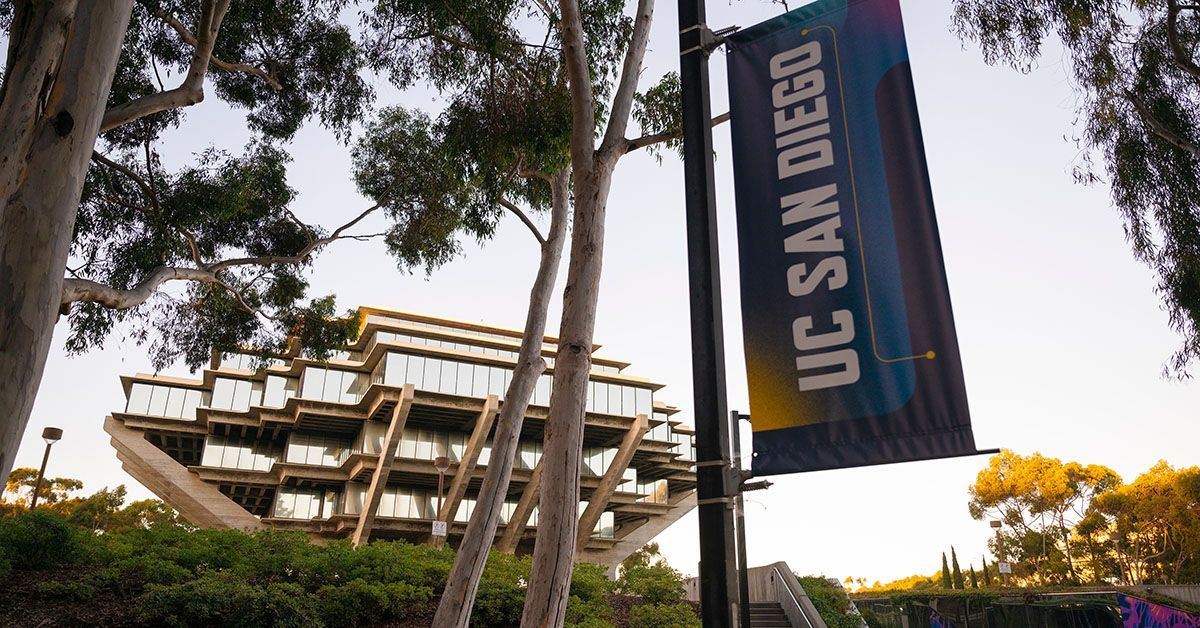 UC San Diego Graduate Programs Recognized Among the Nation’s Best by U.S. News & World Report
UC San Diego Graduate Programs Recognized Among the Nation’s Best by U.S. News & World Report
Three School of Social Sciences departments were newly ranked and received high marks in this year’s U.S. News Best Graduate Schools peer-assessment-only rankings. The Department of Political Science was ranked 8th, and the Departments of Economics and Psychology were both ranked 14th in their disciplines. The school also holds impressive standings for specialties last ranked in previous years, such as behavioral neuroscience (1), international politics (5) and econometrics (7).
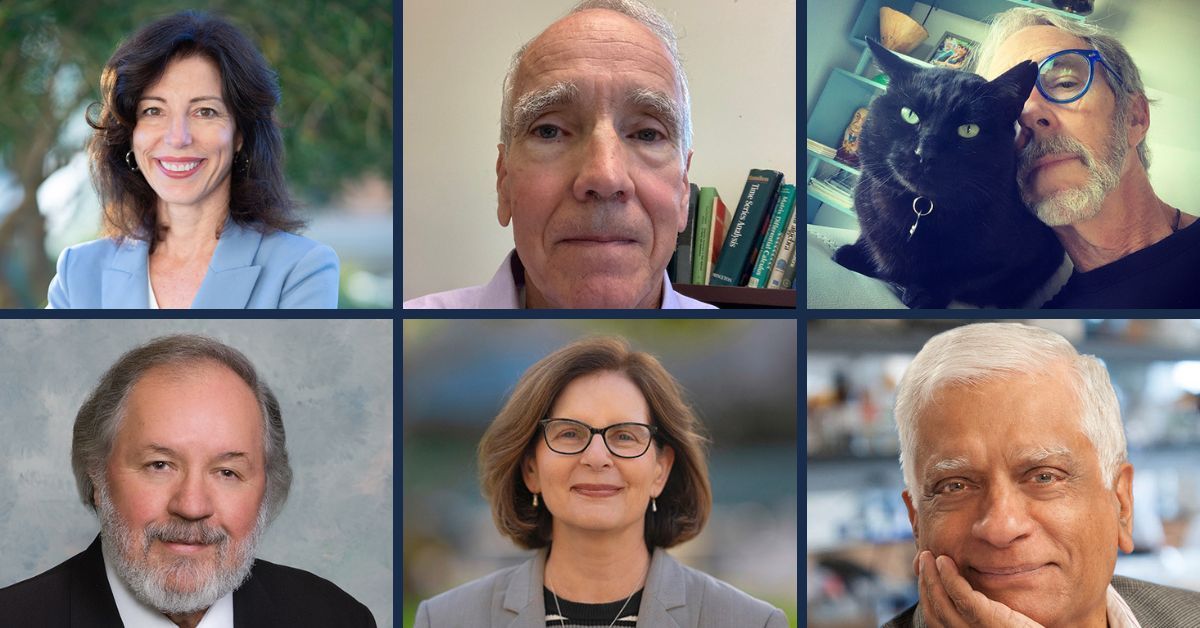 Six UC San Diego Faculty Members Join Prestigious American Academy of Arts and Sciences
Six UC San Diego Faculty Members Join Prestigious American Academy of Arts and Sciences
Three out of six UC San Diego faculty members elected in 2025 to the American Academy of Arts and Sciences are from the School of Social Sciences: Social Sciences Dean Carol Padden of Communication, Associate Dean of Social Sciences Amanda Datnow of Education Studies, and James Hamilton of Economics. In the story, Chancellor Pradeep K. Khosla says that these honors are “a testament to the pathbreaking work being done throughout our university.” The induction ceremony will take place in Cambridge, Mass. in October.
How Has Global Poverty Fallen
“In the 80s, about 2 billion people were poor by the standards we use, and now it's more like 700 million,” said Tom Vogl of Economics on an episode of VoxDevTalks. Vogl conducted research with Economics colleagues Paul Niehaus and doctoral student Vincent Armentano to explain these changing demographics. “No one path out of poverty predominates. There are numerous intricate paths out of poverty.”
 Career Pathways Program Extends a Guiding Hand to High School Students
Career Pathways Program Extends a Guiding Hand to High School Students
The Career Pathways Program – part of CREATE (Center for Research on Education, Assessment & Teaching Excellence) in the School of Social Sciences, led through the EAOP (Early Academic Outreach Program) – empowers high school students in San Diego and Imperial counties to learn about potential college and career options. The program is directed by Economics and Latin American Studies alum Francisco Salinas ’17 and supported by four student advisors, including Cognitive Science undergraduate student Zihan Xu. “Our goal here at CPP is to provide students the knowledge they need to make the best decision for themselves, whether it's going to community college, CSU or UC,” Salinas said.
Tariffs Cannot Fund the Government: Evidence from Tariff Laffer Curves
“Hiking import tariffs is not a viable solution to fund today’s public finances,” writes Marc Muendler, chair of the Department of Economics and founding director of the Globalization and Prosperity Lab, in this GP Lab “cBrief,” or computation-based evaluation of global policies, reprinted by VoxEU. “There is no case in the figure where import tariff hikes could raise an extra $600 billion in government revenues.” Separately, Muendler contributed his expertise on tariffs to ABC10 News x2, LiveNOW from FOX and CNA.
How to Make Indian Governance More Effective
Karthik Muralidharan of Economics appeared on the podcast Sushasan to discuss findings from his book, “Accelerating India’s Development.” Separately, Muralidharan met with Bill Gates to discuss how Indian innovations can help boost global development.
Could the U.S. Become a Manufacturing Hub Again?
“Yes, but the president’s policies will set us back,” James Hamilton of Economics told the San Diego Union-Tribune’s Econometer panel. “The U.S. manufactures over 10% of the world’s cars and computer chips and 20% of world pharmaceuticals…If we want to make America great again, we need to build on the foundations of our success.” Hamilton also shared expertise on whether California drivers should be charged by the mile, if San Diego’s new hotel tax will help expand the convention center, and whether the trade war with China was necessary: “No one wins a trade war. Everybody will get hurt.”
UC San Diego Celebrates 60 Years of Its Unique College System
Did you know six of the eight UC San Diego college provosts are Social Sciences faculty? UC San Diego Today highlighted the impactful work done by provosts Wayne Yang of Ethnic Studies at Muir College, Leslie Carver of Psychology at Marshall, Marisa Abrajano of Political Science at Warren, Ivan Evans of Sociology at Roosevelt, Kate Antonovics of Economics at Seventh, and Angela Booker of Communication at Eighth.
Is It Too Early To Tell What Trump’s Policies Mean for the Economy?
James Hamilton of Economics said as part of the San Diego Union-Tribune’s Econometer panel that although it’s too soon to tell how Trump’s policies will affect the economy, he is concerned about the fall in consumer sentiment: "The Trump administration should take this as a warning flag to be much more cautious about the hornet’s nest of tariffs and retaliations that it has stirred up." Hamilton also contributed to the expert panels on whether San Diego should mandate a $25 minimum wage for tourism workers and whether it’s good for the city’s population growth to be fueled largely by immigration.
How Trump’s Presidency Could Change Where Babies Are Born
The Times (UK) highlighted research by Gordon Dahl of Economics on the "Trump baby bump" among Republicans after the 2016 election.
Covid’s Long Shadow in California: Chronic Absences, Student Depression and the Limits of Money
EdSource cited research by Julian Betts of Economics, revealing that two years of increased federal Covid spending had a positive impact on low-income students in 2021-22, "equivalent to a gain in math and English language arts of about 10 days of learning." However, schools with high percentages of low-income students still lost a quarter year of learning during this period.
U.S. Tariffs, Expert's View
Marc Muendler of Economics, founding director of the Globalization and Prosperity Lab at UC San Diego, has been speaking with a number of local, national and international outlets, including Nikkei (linked here) and CBS, about the various effects of tariffs and trade wars.
Buying a Home in California? Here’s How Seriously You Should Take Zillow’s Climate Risk Data
“The real world is much more complicated than one through 10,” Judson Boomhower of Economics told the San Francisco Chronicle. “You have to take all this with a grain of salt … A single number for every house probably does convey some precision that isn’t really there in reality.” Boomhower also contributed expertise to CNN Business on whether people buying burned lots in L.A. should worry about future fires and to Business Insider on how homeowners can protect their houses from wildfires.
 India Has Undermined a Popular Myth About Development
India Has Undermined a Popular Myth About Development
The Economist cited research by Paul Niehaus, Tom Vogl and doctoral student Vincent Armentano of Economics on how extreme poverty declined in India, China, Indonesia, Mexico and South Africa from 1981 to 2019. One key finding is that people can surpass poverty while still working in agriculture, which is especially significant in India, where more than 40% of workers are employed in agriculture.
Meet the 2025 Illustrious Alumni Honorees
Four out of 10 of this year’s Illustrious Alumni Award recipients are School of Social Sciences alumni! Congratulations to Ellen Chen ’95 of Economics, Shelley S. O’Connor ’83 of Psychology, Jamie Montgomery ’81 of Political Science, and Leo Spiegel ’83 of Economics, who will be celebrated at events in New York and Los Angeles. The award is one of UC San Diego’s highest honors and recognizes distinguished alumni who are “creating a legacy of excellence and innovation.”
Should the U.S. Create a Sovereign Wealth Fund?
“The federal government doesn’t have any wealth to invest,” James Hamilton of Economics said in the San Diego Union-Tribune as part of its Econometer panel. “The U.S. Treasury currently owes the public almost $29 trillion dollars. To create a sovereign fund, the government would need to borrow even more.” Hamilton also contributed to the expert panels on San Diego's ADU bonus program, whether California should back off on 2026 zero-emission car mandates and the future of California's high-speed rail project.
 The Coming Democratic Baby Bust
The Coming Democratic Baby Bust
The Atlantic cited research by Gordon Dahl of Economics showing a “Trump baby bump” among Republicans after the 2016 election. Based on that work, Dahl predicted that a partisan birth gap could also persist over the next four years. “If you’re a Democrat and you really care about child care and family leave and climate change,” Dahl said, you might decide that “this is maybe not the right time to bring a kid into the world.”

Alumni Advice to Students Is on the Money
More than 200 undergraduate students attended the "Future of Finance" career conference hosted by the Department of Economics industry engagement program. The two-day event featured alumni and other professionals who have made their marks as entrepreneurs, leaders and innovators in various industries. "I envisioned an event that would help students explore career possibilities in finance, offer tangible advice on what to do as a student to prepare for a future career and feel a greater sense of connection to UC San Diego alumni and the business community," said conference planner Karen Doescher, who serves as Economics' director of industry relations and student professional development. ICYMI: you can read more about how Doescher and colleagues in Cognitive Science and Urban Studies and Planning are helping Social Sciences students launch their post-college careers.
 An Insurance Crisis Was Already Brewing in L.A. Then the Fires Hit.
An Insurance Crisis Was Already Brewing in L.A. Then the Fires Hit.
Judson Boomhower of Economics spoke to the Washington Post about the Los Angeles fires and the tensions facing homeowners, insurance companies and regulators as climate disasters become more frequent. Boomhower also provided timely expertise to Brookings on how climate change is impacting home insurance, CNN on how the region could have minimized damage, MSNBC on how California can rebuild resilient structures, and other prominent outlets, including Marketplace and CalMatters x2.
UCSD Trump Tariff Simulation: Wages Would Rise, but Prices Would Rise Higher
Marc Muendler, chair of the Department of Economics, shared expertise with ABC10 News about the potential impacts of Trump’s proposed tariffs.
San Diego in 2025: Experts Predict Rising Home Prices, Higher Unemployment and More
“The inflation rate will be a key summary of whether 2025 brings workable compromises or a dysfunctional U.S. government,” said James Hamilton of Economics as part of the San Diego Union-Tribune’s Econometer panel. Hamilton also contributed to expert panels on whether the domestic box office will return to pre-pandemic levels, whether California insurance reforms can stop insurers from leaving, whether MTS should delay or cancel plans to improve trolley service, and whether companies should roll back DEI programs.
Trump’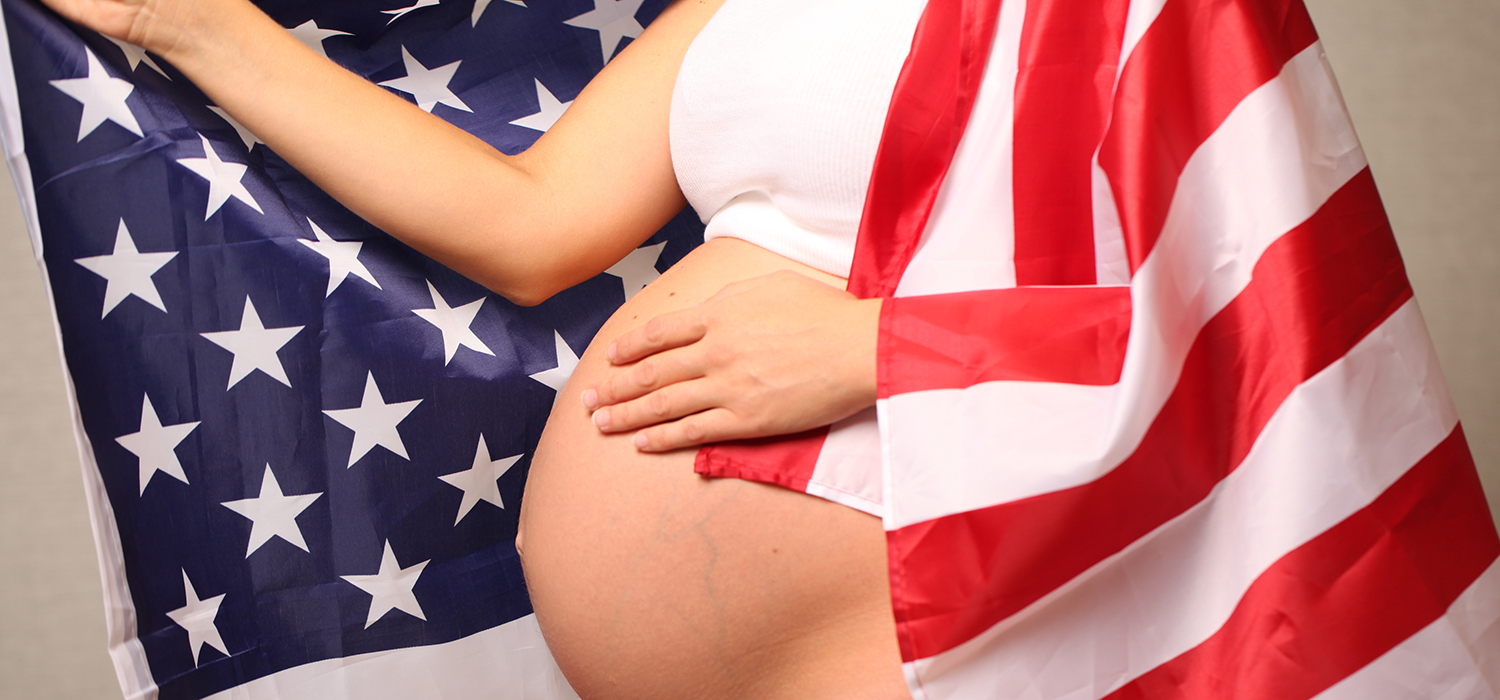 s Second Term Might Have a Surprising Effect on America’s Fertility Rate
s Second Term Might Have a Surprising Effect on America’s Fertility Rate
Can the election of a new president really affect fertility rates? Slate featured research by Gordon Dahl of Economics that says yes. “There is a partisan divergence on policy priorities and worries about the future. So when their party does not win the presidency, they respond to changes in actual or expected policy they think is important to them when considering whether to have kids,” Dahl said. “Republican fertility will rise relative to Democrats, with an increase in the number of babies in Republican families showing up roughly 9-12 months from now.”
Should the U.S. Increase Immigration Levels for Highly Skilled Workers?
“Knowledge and technology are key drivers of the U.S. economy. Students come from all over the world to learn at U.S. universities, and their spending contributed $50 billion to U.S. exports last year,” James Hamilton of Economics told the San Diego Union-Tribune as part of their Econometer panel. “Highly skilled immigrants contribute much more in taxes than they receive in public benefits. The skills immigrants bring to America can make us all better off.” Hamilton also contributed to the expert panels on whether California should offer an EV rebate, whether San Diego should increase parking fees, and whether the U.S. dollar will be replaced as the world’s reserve currency.

Social Sciences Industry Liaisons Help Students Launch Post-College Careers
While the UC San Diego Career Center is a resource for all students in their job search, three School of Social Sciences departments have gone a step further by bringing in specialized professionals who are deeply attuned to the unique needs of students in their respective disciplines. "Our industry liaisons play a critical role in supporting our students to make a successful transition from college to the workforce," said Social Sciences Dean Carol Padden. "Their personalized guidance, and the tools and knowledge they provide our students lay a solid foundation for fulfilling and impactful careers." In this feature, learn more about our liaisons: Andrew Cronan in Cognitive Science, Jennifer Eller in Urban Studies and Planning, and Karen Doescher in Economics.
Why Spending Smarter Beats Bigger Budgets
ICYMI, you can watch this TED Talk by Karthik Muralidharan of Economics about how improved government interventions can address the global learning crisis. “We have reason to be optimistic that there is a huge free lunch on the table that we can act on by using data and evidence to improve the effectiveness of public spending,” Muralidharan says.
San Francisco’s Surprisingly Difficult Quest To Turn a Century-Old Highway Into a Park
Proposition K, which would turn a two-mile stretch of San Francisco’s Great Highway into a permanent recreation space, has sparked debates in the city about climate solutions and the effects of car-centric urban design. “In general, parks and open spaces seem to have more benefits than costs,” Mark Jacobsen of Economics told Grist. Encouraging people to replace their cars with bikes would help lower greenhouse gas emissions and noise pollution, plus those already living along the Great Highway could see their property values increase.
Could Tijuana and San Diego’s Cross-Border Economy Benefit From a Second Trump Term?
“Trump sees trade deficits as fundamentally harmful,” James Hamilton of Economics told the San Diego Union-Tribune as part of its Econometer panel. “I expect to see aggressive steps to reduce Mexican imports. Efforts to control immigration are also likely to inhibit some of the cross-border shopping that has boosted San Diego's economy.” Hamilton also contributed to the panels on whether San Diego should spend millions to lure big sports events and what experts are grateful for about the economy.
Double Registration and Strategic Voting Across State Lines
Gordon Dahl of Economics co-authored this Center for Economic Policy Research (CEPR) essay on how U.S. voters who are registered in multiple states, due to moving recently, choose where to vote from and how these voters affect election outcomes. Their research found that double registrants “disproportionately choose to vote in swing states and in states which automatically send out mail-in ballots.”
XPRIZE Rainforest
Economics alum Tom Walla ’91 built and led the team that won the $5 million grand prize at the global XPRIZE Rainforest competition. Walla described that their innovative project “has the potential to revolutionize the rate at which we monitor and assess biodiversity with technology that's small enough to fit in a backpack.” In this YouTube video, learn more about Walla’s UC San Diego roots and economics background.
UC San Diego Launches New Graduation Requirement, Bolstering Climate Change Education
The Jane Teranes Climate Change Education Requirement, an innovative program implemented this fall, mandates that all incoming first-year students complete one course about climate change. Muir College Provost Wayne Yang of Ethnic Studies, who served as co-chair of the workgroup with Teranes, hopes the new requirement will inspire faculty across disciplines to incorporate climate change into their curriculum. “I don't know how we're going to solve climate change, but I have no doubt that our students are going to be part of it,” Yang told KPBS. Out of the 40 approved courses offered this year, many come from departments and programs in the School of Social Sciences: Anthropology, Critical Gender Studies, Economics, Global Health, Political Science, and Urban Studies and Planning. The program received coverage by The Guardian (UK) and ABC News – both of which highlighted the Critical Gender Studies course “Gender and Climate Justice” – and other outlets, including CNN, Inside Higher Ed, NBC7, and FOX5.
Fears of a Global Oil Shock if the Mideast Crisis Intensifies
What are the potential ramifications of an Israeli strike on Iranian oil – will oil and gasoline prices surge globally? “We have precedent for that kind of supply shock,” Eli Berman of Economics told the New York Times, citing the 2019 drone strike on oil production sites in Saudi Arabia. Berman, who is also a research director at the UC Institute on Global Conflict and Cooperation, added: “That attack did not result in a regional tit for tat.”
 Was California Too Quick to Abandon Nuclear Power?
Was California Too Quick to Abandon Nuclear Power?
“Solar and wind are intermittent power sources, and require a backup when the sun’s not shining and the wind’s not blowing. Nuclear is a better alternative than natural gas, and natural gas is much better than coal,” said James Hamilton of Economics, a regular contributor to the San Diego Union-Tribune’s Econometer panel. “What sense does it make for California to shut down our nuclear power plants and then import electricity from coal-fired power plants in Arizona?” Hamilton also contributed to the expert panels on whether Mayor Gloria should receive emergency powers to clear homeless encampments, whether San Diego’s inflation rate will drop below 2%, and San Diego’s plan to construct more townhouses.
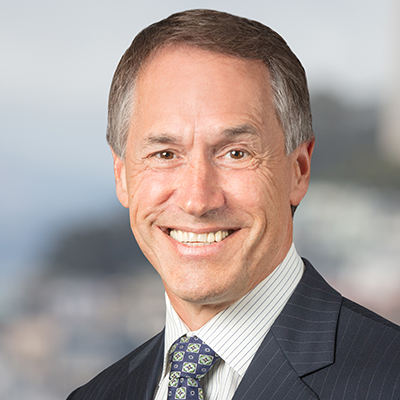 UC San Diego Announces 2025 Lifetime Legacy and Chancellor’s Medal Awardees
UC San Diego Announces 2025 Lifetime Legacy and Chancellor’s Medal Awardees
Ken Kroner ’88, doctoral alum of Economics, is being recognized with a Chancellor’s Medal for “ensuring social good and sustainable futures with leading-edge financial research.”
Workers vs. the Robots: Minimum Wage and California’s Fast Food Offerings
Some economists are concerned that California’s raised minimum wage for fast-food restaurant workers ($20 an hour as of April 2024) could increase teen unemployment and stir fears of robots replacing human workers. Marc Muendler of Economics told SD Metro that since customers still prioritize quality service at restaurants, the new wage will not lead to drastic employment changes. “If you go to a restaurant, you don’t want a robot. There’s no easy way to make restaurant workers more productive and more efficient.”
Did the Federal Reserve Go Too Far with Its Half-Point Reduction?
“Everybody was expecting the Fed to begin reducing rates starting with a one-quarter- to one-half-point cut at the last meeting,” James Hamilton of Economics told the San Diego Union-Tribune’s Econometer panel. “This just means that the Fed is going to get to a lower level of interest rates a little more quickly than many of us expected. It’s a sign that the Fed believes inflation is getting under control.” Hamilton, a regular contributor to the expert panel, also commented on the likelihood of a light rail connection to San Diego’s airport, whether taxes should be removed on tips, and how to address battery storage fire concerns.
Kamala Harris' Economic Plan
A survey of top 40 macroeconomists, run by the Financial Times and Allan Timmermann of Economics together with colleagues at the University of Chicago and Johns Hopkins, is cited in Vice President Kamala Harris’ economic “New Way Forward” plan.
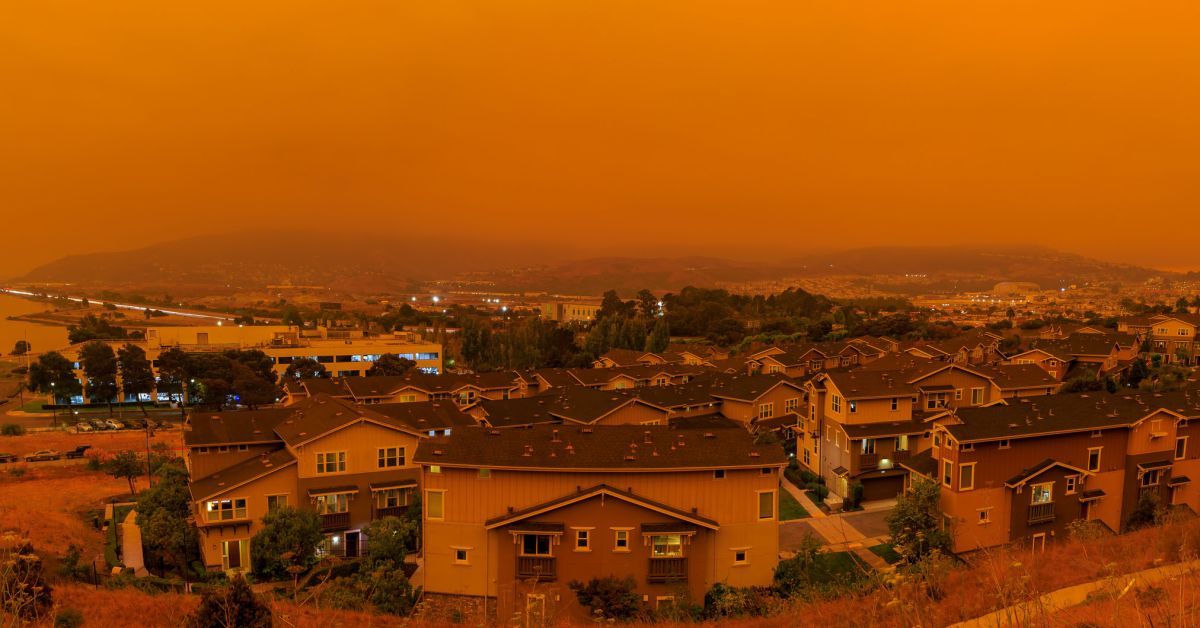 How Are Insurance Markets Adapting to Climate Change? New Study Explores the Impact of Wildfires on Home Insurance
How Are Insurance Markets Adapting to Climate Change? New Study Explores the Impact of Wildfires on Home Insurance
As natural disasters increase in frequency and intensity due to climate change — with annual losses in the U.S. now topping $120 billion — the homeowners insurance market is facing unprecedented challenges. A new working paper from the National Bureau of Economic Research (NBER), co-authored by Judson Boomhower of Economics, delves into how insurance companies are responding to increased climate risks, particularly wildfires, which have become the fastest-growing source of catastrophe-related damages in the United States. The study, covered in Bloomberg, The Hill, and LA-area NPR affiliate LAist, found "striking variation" in how insurers priced wildfire risk.
Are San Diego Jobs at Risk From AI?
"AI will change the way many of us work. It will eliminate some jobs. But it will also create new jobs, particularly for those who develop and apply the new technology," James Hamilton of Economics told the San Diego Union-Tribune’s Econometer panel. "AI and people need to work together to be most effective." Hamilton, a regular contributor to the panel, also shared his expertise on whether the overvaluation of homes makes home ownership a risky decision, on whether a Harris administration could spur construction of 3 million new homes, on Comic-Con demands for reduced hotel room prices, on whether a U.S. economic slowdown would be a hard or soft landing, and other topics.
California's Exodus Could Get Even Worse
California’s population has decreased by 500,000 over the last three years, and experts are wondering why so many Californians are moving to other states. "All the data I've seen suggest that housing is the driving issue. A typical house in California costs twice as much as a typical house in Texas, the most common destination for California out-migrants," Tom Vogl of Economics told Newsweek. "California is also the epicenter of homelessness in the US. The homelessness crisis is another byproduct of unaffordable housing as well as another push factor that may drive residents to leave."
Fertility, Migration, and Altruism
In this Faculti.net video, Eli Berman of Economics presents his research on Soviet Jews who migrated to Israel and the complex interplay of migration costs and their effects on intergenerational altruism and fertility.
Getting Cash Transfers Right
Paul Niehaus of Economics appeared on a VoxTalks Economics podcast, produced by VoxEU and the European Center for Economic Policy Research, to discuss how cash transfers to individuals and households can be best used to alleviate poverty.
30 Years of Critical Funding for Junior Faculty
The Hellman Fellows Program recognizes promising junior faculty and provides funding to support their research and progress towards tenure. Congratulations to the Social Sciences faculty selected for the 2024-25 cohort: Fabian Eckert of Economics, José I. Fusté of Ethnic Studies and Critical Gender Studies, Neil Gong of Sociology, Kelema Lee Moses of Urban Studies and Planning, Holly Okonkwo of Ethnic Studies, and Haijun Xia of Cognitive Science.
The Basement Celebrates Student Entrepreneurship with Demo Day-Pitch Competition 2024
Social Sciences students shined in the Demo Day and Pitch Competition at the Basement. Economics major Paulina Laba won first place for the startup she co-founded, LockPod, that designs next-level bike lockers to prevent bike and scooter theft. "I came to [The Basement] with just a drawing on my iPad, and now it’s grown into a full company," Laba told UC San Diego Today. The story also highlighted projects by Cognitive Science major Samantha Sayson, Economics major Harris Dalal, and Economics and Psychology major Richard Collins Billhardt.
WTO Announces Winner of 2024 Essay Award for Young Economists
Congratulations to Economics doctoral alumnus Carlos Góes ’24 on receiving the World Trade Organization’s 2024 Essay Award for Young Economists for the paper “Trade, Growth, and Product Innovation.” The paper examines the mechanisms through which trade integration can lead to product innovation. Note: A UC San Diego Economics alum has won the award for the second year in a row: Xiao Ma ’21 won the award in 2023. Both winners were Ph.D. students of Marc Muendler.
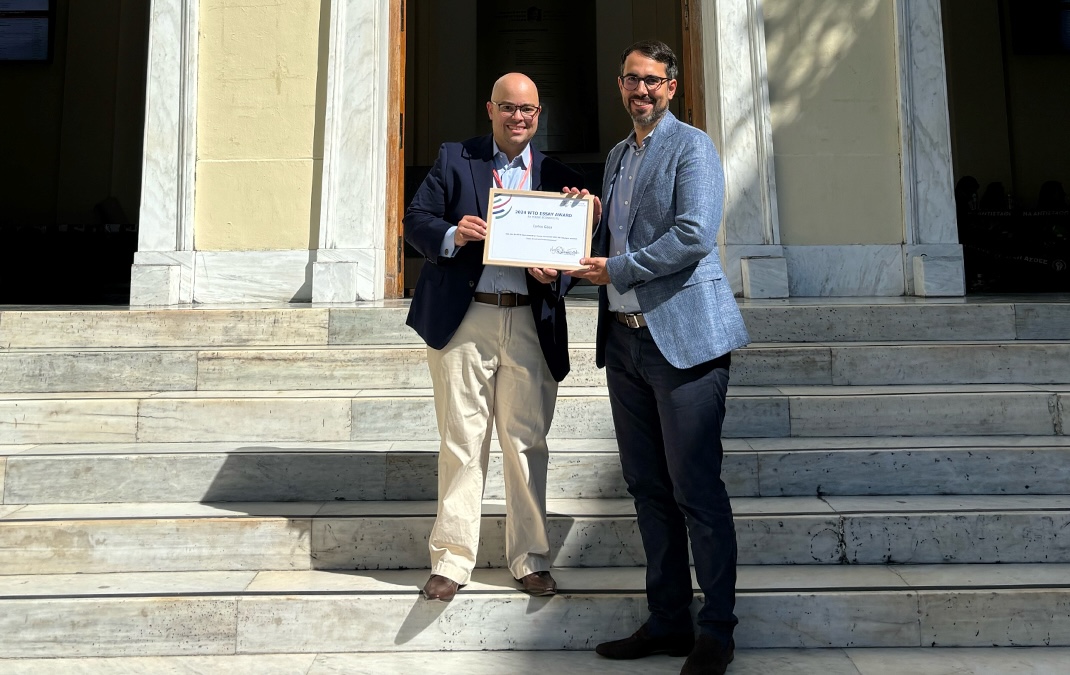
Triton Athletes Face the Hidden Opponent
Economics undergraduate student Reilly Erickson and Psychology undergraduate student Zoë Richards, both members of the UC San Diego softball team, told UC San Diego Today about their work with The Hidden Opponent, a student organization that strives for increased mental health awareness in sports culture. “You’re expected to be a good athlete but you're also expected to be a good student, teammate and friend,” Richards said about the pressure placed on student athletes to excel in all areas. “My goal,” Erickson added about The Hidden Opponent’s mission, “is to collaborate with coaches and teams to create safe spaces for athletes to talk about their mental health and advocate for athletes as a whole.”

Are Higher Mortgage Rates Enough To Slow San Diego Home Price Growth?
James Hamilton of Economics, a regular member of the San Diego Union-Tribune’s Econometer panel, said that a 7.52% interest rate, the highest mortgage rate this year, will deter some homebuyers. “Rates are going to take much longer to come down than many people had been assuming. If you’re going to be stuck paying that high interest for many years, you have to rethink purchasing an expensive home.” Hamilton also contributed to the Econometer discussions of whether San Diego should implement the $25 service worker minimum wage, Biden's raised tariffs on Chinese EVs,the impact of San Diego City Council increasing developer fees, and whether a new neighborhood group in Uptown is a positive development.
Education, Collaboration Help Launch Startups at UC San Diego
“In 2015, we launched The Basement with complementary objectives of incubating ideas and student entrepreneurs,” Economics alum Jeff Belk ’83 told UC San Diego Magazine. The Basement, co-founded by Belk and housed in the new Design and Innovation Building, features a prototyping lab, standing tables, computers and large-scale screens to foster collaboration and interdisciplinary brainstorming.
System Changers: Notes on Session 3 of TED2024
Karthik Muralidharan of Economics and Political Science doctoral alum Rumman Chowdhury gave TED2024 talks, as did Keolu Fox of Anthropology. Stay tuned for the videos! We’ll share as they become available.
Meet the 2024 Alumni Award Honorees
ICYMI, you can watch these videos celebrating our amazing Alumni Award recipients: Deborah Bronston-Culp '80 of Economics, The Rt. Rev. John Harvey Taylor '80 of Political Science, Alondra Nelson '94 of Anthropology, and Mayly Tao '12 of Communication.
Champions of Change: Celebrating UC San Diego’s Volunteer Community
In celebration of Volunteer Appreciation Week, UC San Diego Today featured Economics undergraduate student Tyler Lenart and Economics alum Frank Bellavia ’16 for their community service work on campus and beyond. “Support your local community and your local economy – visit the stores around you, see how people live, why they work, where they are from and get involved to help support them,” Bellavia advised those looking to start volunteer work.
Is the Negative Effect of the $20 Fast-Food Minimum Wage Overblown?
James Hamilton of Economics told the San Diego Union-Tribune, as part of their Econometer panel, that the negative impact of a $20 fast-food minimum wage is very real. “A recent survey found 1 in 8 Americans had worked for McDonald’s at some point in their lives. Now fewer of these jobs are going to be available in California.” Hamilton also contributed to the expert panels on Sea World's declining attendance, whether the Federal Reserve will cut interest rates, and whether California’s Supreme Court should overturn new rooftop solar rules.
Niehaus Wins Econometric Society's 2024 Frisch Medal
Congratulations to Paul Niehaus of Economics on winning the Econometric Society’s 2024 Frisch Medal for his contributions to the paper “General Equilibrium Effects of Cash Transfers: Experimental Evidence from Kenya.” The Frisch Medal celebrates the best applied paper published in Econometrica in a four-year period.
As Population Growth Slows, San Diego May Not Need to Build as Many New Homes
“Has San Diego County already built enough new housing to accommodate all the currently projected population growth through the year 2050? The answer, surprisingly, is ‘yes,’” Richard Carson of Economics writes in a Times of San Diego opinion piece. In spite of this, homelessness rates have not changed much, because most new housing developments are high-end, so a lack of affordable housing in San Diego is still an issue community planners must address.
2024 Economic Report of the President
Research by Juan Herreño of Economics was cited in the 2024 Economic Report of the President released by the White House and its Council of Economic Advisers.
Brian and Nancy Malk Donate to UC San Diego Department of Economics, Naming Malk Hall
La Jolla resident and businessman Brian C. Malk and his wife, Nancy, have pledged a philanthropic gift to support the expansion of the Department of Economics. Slated for completion in 2026 as part of Ridge Walk North Living and Learning Neighborhood, Brian C. Malk Hall will also house the Hub Basic Needs Center and the Triton Food Pantry. “Malk Hall will provide a collaborative space for our faculty, students and our many partners as we strive to foster the thought leaders and changemakers of tomorrow,” said Carol Padden, dean of the School of Social Sciences. Economics chair Marc Muendler added: “Malk Hall will be a magnet for students, faculty and thinkers from across campus and from around the world.”
 Sue King, the department's long-serving manager, has retired effective April 30, 2024, and Nicole Daneshvar has stepped into the role of Chief Administrative Officer. To celebrate Sue's outstanding managerial skills and unwavering support for the Economics Department over the course of 13 years, faculty and staff got together on April 18, 2024 and shared memories with Sue. A line-up of faculty and the department's current and former chairs, with whom Sue worked during her tenure at the department, recognized in their remarks Sue's deep commitment to the staff, professors and lecturers, her even-keeled style and adherence to fairness, and her foresight in preparing for her succession. As she embarks on further journeys, the department wishes Sue fair winds and following seas.
Sue King, the department's long-serving manager, has retired effective April 30, 2024, and Nicole Daneshvar has stepped into the role of Chief Administrative Officer. To celebrate Sue's outstanding managerial skills and unwavering support for the Economics Department over the course of 13 years, faculty and staff got together on April 18, 2024 and shared memories with Sue. A line-up of faculty and the department's current and former chairs, with whom Sue worked during her tenure at the department, recognized in their remarks Sue's deep commitment to the staff, professors and lecturers, her even-keeled style and adherence to fairness, and her foresight in preparing for her succession. As she embarks on further journeys, the department wishes Sue fair winds and following seas.
How India Could Become an Asian Tiger
The Economist features Karthik Muralidharan of Economics and his new book “Accelerating India’s Development.” Muralidharan’s book argues that a central barrier to India’s development is ineffective governance, and that “changes to personnel, data and federalism would together represent the beginnings of a reform package that could do wonders for India’s governance, and therefore its growth.”
Focus on South Asia
The South Asia Initiative is gaining a new annual forum, made possible by an endowment fund established by Jacobs School of Engineering professor Mohan Trivedi and family. “Our family has participated in and enjoyed various events organized by the South Asia Initiative,” Trivedi told UC San Diego Today. “We are delighted to offer the Gulistan South Asia Endowment Fund as a token of our deep appreciation for the UC San Diego community.” Prashant Bharadwaj of Economics and Saiba Varma of Anthropology are the co-directors of the new forum and steering committee members of the South Asia Initiative. Speaking to the forum’s significance, Varma said: “It will bring speakers of international stature to campus, support greater understanding of the South Asia region from diverse perspectives, and anchor the minor on South Asian Studies.”
Is the Port of San Diego on the Right Track with Its New Master Plan?
James Hamilton of Economics is supportive of San Diego’s plan to create new parks, restaurants, hotels and shops on the waterfront. “We should embrace a vision of a more economically vibrant waterfront while protecting critical natural wetlands. The plan will help bring more tourists and tax revenue to the city,” Hamilton told the San Diego Union-Tribune as part of their Econometer panel. Hamilton also contributed to the expert panels on San Diego’s $4.5 million trash study, Biden’s tax increase proposals, and whether people will continue to move out of San Diego County.
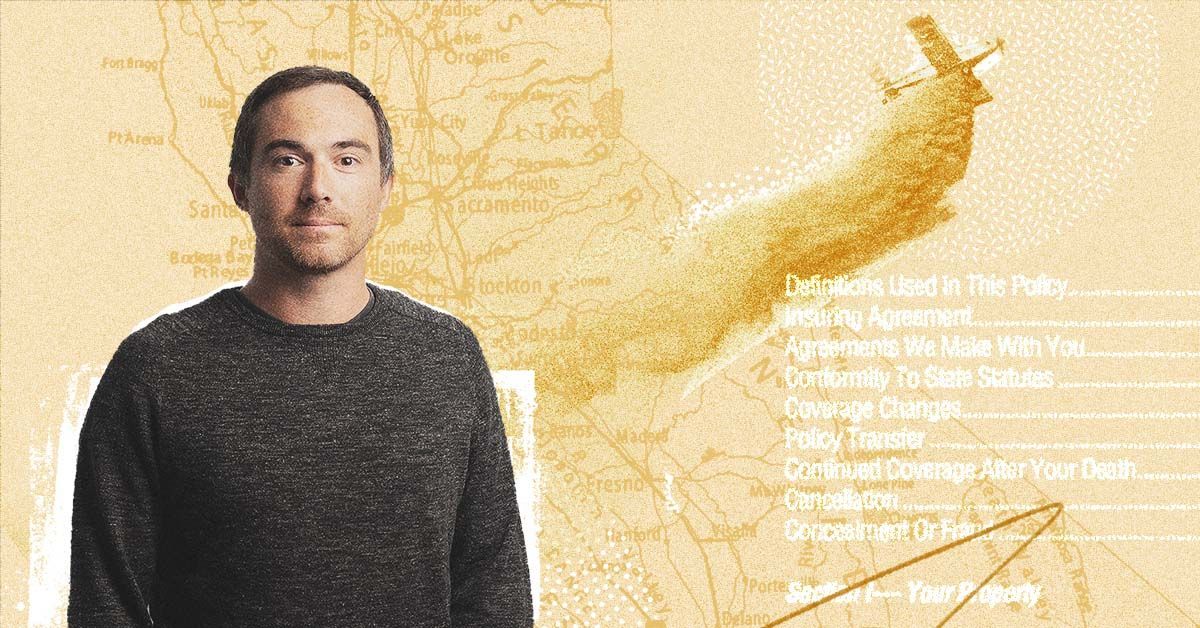 Adapting to Growing Wildfire Property Risk
Adapting to Growing Wildfire Property Risk
“With tens of millions of US homes now confronting a growing risk of destruction by wildfires, adaptation is an urgent policy and research challenge,” Judson Boomhower of Economics writes in a Science “Policy Forum'' piece. Featured in the magazine’s ScienceAdviser newsletter, Boomhower’s research explores how protections against wildfires can be more cost-effective and equitable. Boomhower also appears in this UC San Diego Magazine “Economies of Wildfire” story.
What Would It Take to End Extreme Poverty?
“We could end extreme poverty at a price so low that none of us would notice the difference,” said Paul Niehaus of Economics in a TEDx Boston talk about the effectiveness of giving money to people in poverty directly.
Economic Report of the President 2024
Juan Herreño of Economics was among the UC San Diego scholars whose work was cited in the 2024 Economic Report of the President.
News Archive
Vox's 2023 Future Perfect list - Paul Niehaus is changing how we think about fighting global poverty, November 2023
Honolulu Burn Unit Put to the Test by Fires on Maui, August 2023
Research Growth Tops $1.76B With Tremendous Portfolio of Discovery and Invention, August 2023
Industrial Disasters May Cause Higher Rates of Disability and Cancer for Future Generations, June 2023
Serious Business: Expanding the Talent Pool for a More Inclusive Economy, June 2023
Car Talk, May 2023
NSF CAREER Award, May 2023
Can $4,000 Lift a Family Out of Poverty? New San Diego County Program Aims to Find Out, May 2023
How the Migration of Southern Whites in the 20th Century Shaped America’s Landscape, May 2023
An Update on Housing Inflation in the Consumer Price Index, April 2023
Stiff EPA Emission Limits to Boost US Electric Vehicle Sales , April 2023
Economic Report of the President 2023, March 2023
Two Transformative Campus Projects Get the Green Light , March 2023
Here’s How San Diego County Spent $1.4 Billion in COVID-19 Aid, and What It Could Mean for the Future, March 2023
Helping the ‘Unbanked’, March 2023
America’s Other Great Migration, March 2023
Are Companies More Likely to Fire Older Workers in Mass Layoffs?, February 2023
Will California Continue to See a Population Decrease? San Diego Leaders Discuss, February 2023
Why Republican-Leaning Areas Saw a Rise in Births After Trump’s Election, January 2023
Brazil’s Economic Challenges Are Again Lula’s to Tackle – This Time Around They’re More Daunting, January 2023
Econometer: Should Businesses Pause Advertising on Twitter?, December 2022
Tackling Sexual Harassment Could Bring Sizeable Economic Dividends, December 2022
VoxDev’s Most-Read Article, December 2022
Reversing Losses in Learning After Covid, October 2022
California Team to Uncover Pandemic Impact on PreK-12 Students, October 2022
Math to Make a Difference, October 2022
Kroner Center to Strengthen and Protect Retiree Investments, October 2022
Welcome, Aram Grigoryan, October 2022
Welcome, Nir Jaimovich, October 2022
One of ‘100 Most Influential Academics in Government’, October 2022
Econ Alum Wins Heinz Award, September 2022
Remote Work Drove Over 60% of House-Price Surge, Fed Study Finds, September 2022
The 8 Economists Who Decide If the U.S. Is in a Recession, July 2022
Why Billionaires Are Donating Millions to This Nonprofit That Gives Cash to the Poor, July 2022
Did the Federal Reserve Make the Right Call Increasing Interest Rates?, June 2022
California’s Wildfire Building Codes Make Newer Homes Less Likely to Burn, April 2022
The Resilience of State and Local Government Budgets in the Pandemic, March 2022
What If TV Isn’t Bad for Us?, January 2022
Inflation Inequality, January 2022
Welcome, Juan Herreno, December 2021
Welcome, Steve Wu, December 2021
Graham Elliott elected Fellow of the Econometric Society, September 2021
Graham Elliott named the Sir Clive W. J. Granger Endowed Chair in Econometrics, July 2021
Welcome, Emanuel Vespa, November 2020
Read a collection of Tributes to Distinguished Professor, Emeritus, Mark Machina, November 2020
Welcome, Fabian Trottner, October 2020
Welcome, Denis Shishkin, September 2020
Welcome, Sara Lowes, August 2020
Welcome, Fabian Eckert, August 2020
Welcome, David Arnold, August 2020
Message from the Chair, June 2020
Valerie Ramey awarded 2020 R.K. Cho Economics Prize, May 2020
Valerie Ramey named one of Worth Magazine's 16 Powerhouse Female Economists, May 2019
Team UCSD wins the CFA Institute Local Research Challenge for the 3rd year in a row, Mar 2019
Songzi Du, Econometrica, May 2021
Sara Lowes, American Economic Review, April 2021
Isabel Trevino, Econometrica, Jan 2020
Karthik Muralidharan, American Economic Review, Apr 2019
Johannes Wieland, American Economic Review, Feb 2019
Judson Boomhower, American Economic Review, Feb 2019
Julian Betts, Public Policy Institute of California, Jan 2019
American Academy of Arts and Sciences Elects UC San Diego Chancellor and Three Professors, April 2017
Economics in Action Newsletter Archive
- Issue 25 - Fall 2017
- Issue 24 - Fall 2016
- Issue 23 - Spring 2016
- Issue 22 - Fall 2015
- Issue 21 - Spring 2015
- Issue 20 - Fall 2014
- Issue 19 - Spring 2014
- Issue 18 - Fall 2013
- Issue 17 - Spring 2013
- Issue 16 - Fall 2012
- Issue 15 - Spring 2012
- Issue 14 - Fall 2011
- Issue 13 - Spring 2011
- Issue 12 - Fall 2010
- Issue 11 - Spring 2010
- Issue 10 - Winter 2010
- Issue 9 - Spring 2008
- Issue 8 - Spring 2007
- Issue 7 - Spring 2006
- Issue 6 - Fall 2005
- Issue 5 - Spring 2005
- Issue 4 - Fall 2004
- Issue 3 - Spring 2004
- Issue 2 - Fall 2003
- Issue 1 - Spring 2003

